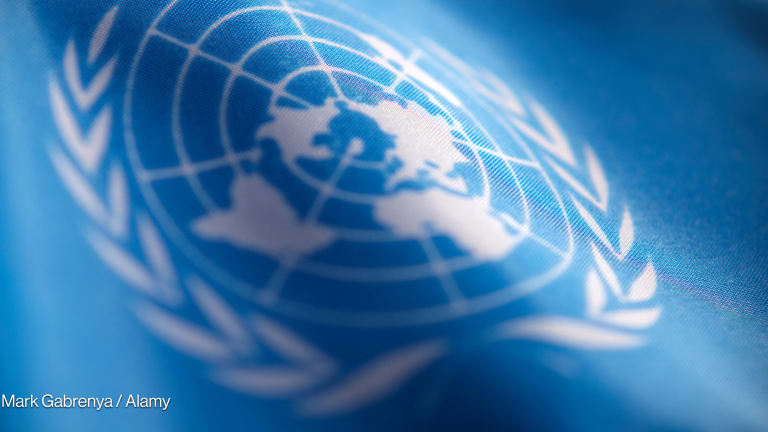
The World Health Organization is struggling with efforts to hire inspectors to investigate sexual exploitation and abuse in its programming, according to an agency official.
Following allegations of sexual exploitation and abuse that emerged from WHO’s response to the 2018 Ebola outbreak in Democratic Republic of Congo, the agency is under heightened pressure to change its policies and internal culture, as well as to speed up its fact-finding mission on these allegations, with more transparency.
Sign up for Devex CheckUp
The must-read weekly newsletter for exclusive global health news and insider insights.
As part of its reform efforts, the agency has identified a need for a “critical mass of inspectors” to investigate acts of exploitation and abuse, said Dr. Ibrahima Socé Fall, assistant director-general in WHO’s emergency response division, during a meeting at the 74th World Health Assembly on Friday. It also identified high-priority countries where these inspectors should be placed first, including Afghanistan, DRC, Ethiopia, Somalia, South Sudan, Sudan, Venezuela, and Yemen.
While it has started efforts to fill these positions, WHO has found it difficult to identify candidates who fit what Fall describes as the “very rare” job profile it is seeking.
“We have to keep in mind that we are often working in risky areas, in the Congo or Ukraine. And sometimes it’s difficult to find focal points in a country who can deal with these issues for us,” he said through a translator.
Another challenge is an inadequate level of predictable financing to retain staffers and to maintain “institutional memory” of efforts to prevent sexual exploitation and abuse, said Mike Ryan, executive director at the WHO Health Emergencies Programme.
“In many ways, we are all to blame for what happens in these situations, and we all need to commit to making it better,” he said.
WHO said it was made aware of the allegations in DRC in September, but a recent report from The Associated Press found that senior WHO management was informed in 2019 and was asked how to handle them.
The agency appointed an independent commission, which hired an external organization to investigate. Field investigations began earlier this month, and the commission is expected to deliver its report at the end of August.
“We must from now on see much more transparency from the WHO,” said a representative from the United Kingdom during the World Health Assembly meetings.







